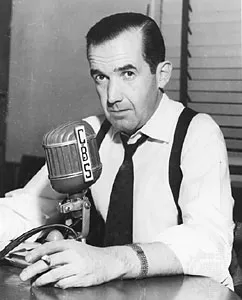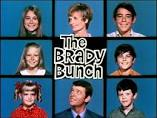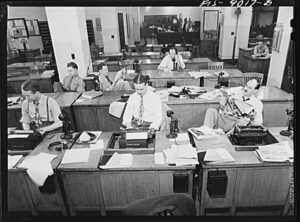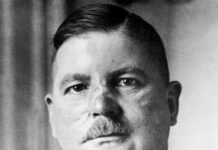Since Ted Turner played a practical joke on American cable viewers when he started his 24-hour news broadcasting operation in 1980, the cable TV news medium has still not consistently found a way to attract new viewers for an extended period.

The latest casualty caused by the floundering format problem is Joy Reid of MSNBC. Reid is just another victim of trying to fill a two-hour “news” show with something that can keep people interested and attuned to a single channel for hours.
MSNBC is in the middle of the news channel rankings: ahead of CNN and behind FOX’s sensationalist and fabricated news. The network suffers from two problems: its “talk television” format and its alignment with the Democratic Party. Since Harris’ pathetic loss to Trump, preceded by Biden’s failing mental condition, the election loss meant fewer Democrats would be attuned to the floundering Democratic Party. As a result, they stopped watching MSNBC to see where the leaderless Democrats were going.
Since the network cannot do anything about the directionless Democrats, they opted to re-arrange their hosts. The MSNBC format changes are refreshing since a news network must frequently reinvent itself to keep pace with a circus of podcasts, propaganda, TikTok, Facebook, X, and other internet disinformation sources.
The Reid replacement is a good example of MSNBC’s experiment with “talk television.” In this format, news readers who are lawyers or previously worked in the White House deliver what is best described as a lecture in 10 to 15-minute segments, broken by an interview with an individual guest or guest panel of up to six people. These large panel discussions look like something from the Brady Bunch. 
What the guest or panel adds to what has been said varies widely. Most guests are subjected to “what-if” scenarios or more conjecture on how another person or nation will respond, even if any answers are outside the expertise of the person being asked the question.
Alternatively, commonly on MSNBC, the guest has to suffer through a long, 250-word question asked by Joe Scarborough or Nicole Wallace. During this painful period, the guests must sit with a frozen smile and ask themselves how they got involved with this on-air interview in the first place.
The main problem with most news announcers is that they are not journalists but cable TV creators of “commentators,” “political analysts,” or hold some communications line position in the White House.
The problem in Trump’s contemporary America of social media and incessant talk shows is that almost every citizen is a commentator or analyst of something. To an astute voter, the analysis of contemporary political events by an MSNBC news reader is mostly redundant.
Worse, the consecutive MSNBC lineup from 5 a.m. EST to 11:00 a.m. EST is repetitive, making it difficult for anyone to fill their one—or two-hour slots with something new. That accounts for the desperate “stay with us” plea when an MSNBC anchor signs off from one show to the start of another, and the latest show announcer has to put up the misleading “breaking news” announcement when nothing is new.
This is akin to businesses posting “Going Out of Business” banners displayed for up to a year until local authorities finally said it was misleading shoppers. All the cable networks use this same cheap trick of “Breaking News” to fool viewers into staying tuned for something that happened hours or days earlier.
What Happened to Joy Reid?
MSNBC President Rebecca Kutler announced that Reid was being replaced by another panel format show featuring Symone Sanders Townsend, a political commentator and former Democratic strategist; Michael Steele, a former chairman of the Republican National Committee; and Alicia Menendez, a TV show host.
This looks like more of the same old tired format: a sputtering Democrat and Republican who can describe Trump’s march toward fascism for the next four years. The exception is Menendez, the 42-year-old daughter of ex-Senator Robert Menendez, a Democrat convicted of bribery, obstruction, and foreign agent charges in January 2025. He was sentenced to 11 years in jail. Her brother is Congressman Rob Menendez Jr. of the United States House of Representatives. It remains unclear what, if anything, she adds to this team.
Again, none of these people are experienced journalists. However, in MSNBC’s experiment with “talk television,” hiring a journalist would be a mistake. Journalists are taught to avoid opinions and conjecture in their reporting, and that’s the exact opposite of cable news. The cable news shows are 10% news and 90% hypotheticals, conjecture, banter, asking the same questions repeatedly to the same guests.
This is an old problem in journalism. In his old age, Thomas Jefferson suggested that newspapers be divided into four sections: truth, possibilities, probabilities, and lies.
This is why the most challenging part of being an overpaid news announcer is keeping a straight face while asking the same question a dozen times a day, expecting a new answer.
Instead, it’s noticeable to viewers that most news announcers are killing time. In one sad Sunday interview, MSNBC anchor Katy Phang asked an FAA expert why air traffic controllers were needed as she was reporting on a recent airplane crash.
The case of Joy Reid was not unexpected. Reid was a news host, and without a teleprompter, she seemed lost. As an example, in a Nov. 27, 2023 interview (11–27–2023) with Professor Nora Erakat, an apologist for Hamas, Reid did not know that Hamas is a gangster organization that has siphoned billions from international aid organizations and nations, and has received money from your activities and used the money for their personal use? Reid was also criticized for comments about Kamala Harris’ “perfect campaign” and how inflation is a word only used by journalists and economists.
Reid was paid about $3 million annually, so there is no need for a go-fund-me page. However, MSNBC throws big money at news readers with the uphill challenge of sticking to a thankless “talk TV” news format. Americans don’t like being lectured to by people who lack expert credentials. Even then, a lecture via TV should be less than 30 minutes long.
Can MSNBC Break the Cable News Curse?
So, can MSNBC break Ted Turner’s 24-hour cable news curse?
Probably not.
Due to its structure, MSNBC has fallen victim as an organization into a routinized way of thinking. That’s why each show is essentially the same. Working in that same structured environment where the “news” only stems from Congress must be dull. It may surprise MSNBC management, but the populace has outflanked you. We already know the situation, the heroes and villains. You confirm our impressions but do not teach us anything new.
Today, significant advances are being made in science, medicine, nutrition, archeology, space, AI, pharmacology, and psychology, all of which are new to viewers. But your myopic coverage excludes civilization’s most significant advances.
The golden age of TV and radio journalism was forged in a pre-social media epoch, when there were three broadcast radio and TV networks, various newspapers, and monthly magazines. Social media has destroyed the hard news business, except for financial journalism, where the facts matter.
In the old days of network news, there were science, environmental, and labor editors. These jobs were eliminated or replaced by podcasts, but there is still an opportunity for cable news. 
The best examples of cable TV journalism today come from the BBC and NPR, both non-commercial, which adhere to high journalism standards and fit into mentally digestible 30- or 60-minute shows. “Hard Talk” on the BBC and the PBS News Hour are everything a well-informed TV viewer needs daily.
As for MSNBC’s reformatting challenge, maybe it’s time to review the “talk television” format.
Too many of their news announcers don’t have the non-repetitive news to fill their time slots, plus they seem to re-invite the same stale guests to re-hash old news.
MSNBC also has an interesting problem: its early morning and late-evening shows (Morning Joe and Lawrence O’Donnell) are much better than others in their programming day. Solving this may be the key to improving the network. Is it due to the better intellects of these on-air people or their delivery? O’Donnell, for instance, never seems to get lost in his delivery the way some others do. He is fluid and authoritative. The Morning Joe team chemistry also keeps the show flowing.
Expanding the list of vetted expert guests outside the Beltway also would be a great beginning. This does not mean town halls but finding experts from different political perspectives who are not Congressmen, advisors, consultants, or party hacks. This should even include victims of bad political policies who have suffered an economic or justice loss.
Unfortunately, those names are not in the Rolodexes of ex-White House staffers and MSNBC hosts like Nicole Wallace and Jen Psaki, who revere the White House and its press secretaries as an information font. This is a mistaken belief.
Press Secretaries in the Biden and Obama administrations were benign propagandists who put the best spin possible on the administration’s actions. We’ll see if Psaki breaks any big stories from the Biden White House, specifically who and when Biden insiders knew about his declining mental state. That should be an easy task for Psaki (who got a $5 million signing bonus from MSNBC) if she has any reporting abilities or has an inside track on the information. If not, MSNBC gives her too much credit (and money) for being an audience attraction.
For MSNBC to increase its ratings, it must reinvent the entire category of contemporary cable news, just as newspapers have done. Expanding into podcasts will not fill the coffers.
It should also expand its on-air talent search to professors, self-taught generalists, or fascinating average people. Working in the White House alone is no reason to become an overpaid cable news announcer. Even with their White House experience, these same MSNBC announcers never seem to break anything newsworthy due to their contacts. Maybe MSNBC management is too enthralled with people who held White House jobs with big titles but still cannot describe the inner workings of the government.
It’s also an insult to invite an expert to be interviewed and only give them two or three minutes of air when the newsreader wastes the interviewee’s time asking verbose, inane questions.
To reinvent itself, MSNBC must make a bet that’s too big for a multi-billion-dollar corporation to undertake. In the interim, they will continue to shuffle hosts using the same format, hoping against the odds that things will improve.










